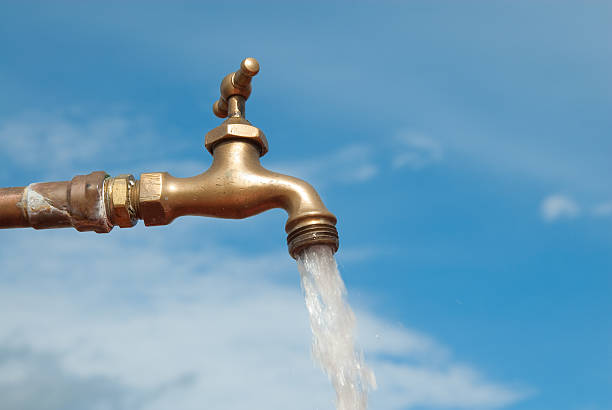Water Alliance India, Ion Exchange Limited, Swach Environment Private Limited, Nangloi Water Services Private Limited, industry associations and other companies dealing with water management services have appealed to the Government of India to include water and waste water sectors in Emergency Credit Guarantee Limit Scheme (ECLGS 2.0) in order to seek financial support from lending institutions.
The water sector in India is under severe financial stress due to the Covid 19 pandemic with various drinking water and sanitation projects suffering immensely on account of restrictions imposed on activities, lack of manpower, credit crunch and shortage of raw material. With no financial support in the face of cautious lending by financial institutions, a failure to define the water and wastewater projects under any of the pre-defined sub-sectors of Infrastructure or Construction in the ECLGS will spell doom for the viability of projects which are battling enormous financial distress.
Commenting on the issue, Sourav Daspatnaik, Managing Trustee, Water Alliance India said: “It is a matter of great concern that Water, Waste Water and Sanitation sectors which have been at the forefront of the Covid-19 crisis are not considered in the eligible sectors. Just like power and electricity, Water, Waste Water management and Sanitation must be considered as an essential service and cannot be subservient to other sectors. The life line of water infrastructure development in India will tumble if such reliefs under the Government policies are not made available to the Water, Waste water and Sanitation sector.”
The Government of India in response to the crisis caused by the COVID-19 pandemic, announced an Emergency Credit Line Guarantee Scheme (ECLGS). Under the Scheme, the Government undertook to guarantee additional facilities provided by lending institutions to their existing borrowers. The same was further revised as ECLGS 2.0 wherein the Government guaranteed additional lending to the 27 sectors including the 26 sectors defined by the committee headed by Shri KV Kamath and the Health sector. Later, hospitality, travel and tourism, leisure and sporting sectors were included in the list of eligible sectors.
However, the water infrastructure players have not been able to avail this scheme in the absence of the water sector being listed in the 26 sectors defined by the KV Kamath Committee. The loans under ECLGS can be sanctioned only up to 30 September 2021 and disbursed up to 31 December 2021.
Ajay Popat, President, Ion Exchange said, “The Covid 19 pandemic and consequential lockdowns have impacted many drinking water and waste water management projects of the Central and the State Governments. Many participants in the water sector are MSMEs. The very idea of introducing Emergency Credit Line Guarantee Scheme (ECLGS) was to help those sectors which have been impacted due to the Covid-19 pandemic. It is unfortunate that drinking water and waste water management sectors have not been considered to avail the benefits of ECLGS and as a result multiple projects and MSMEs involved in the sector have been affected financially, apart from being crippled with lack of manpower, severe hike in raw materials like steel, cement, electrical etc. Since most of these contracts have fixed prices, the cascading effect of all have resulted in acute credit crunch and financial distress. Thus, it is high time that the appropriate authorities revisit the list of beneficiaries of ECLGS and include drinking water and waste water management sectors into it or the viability of many MSME projects will be in question.”
Ajay Pradhan, President, Consulting Engineering Association of India (CEAI) said, “There has been a growing demand from the Water and Waste Water Sector infrastructure players to issue a proper clarification urgently in defining the Drinking Water and Waste Water projects as a separate sector or as sub-sectors under the Infrastructure or Construction sector to combat the financial distress. As the apex body for consulting and technical engineers in the country, we remain hopeful and confident that a clarification would be issued soon bringing this into effect thus, enabling the lending institutions to process additional funding for the run-down water infrastructure players".
Naresh Jain, President, Delhi Jal Board Contractors Welfare Association said, “The scope of ECLGS must be expanded to include drinking water and waste water management sector. This sector, like other MSMEs, needs urgent relaxations and immediate support to survive. In the absence of the ECLGS being extended to the water sector, many companies may be compelled to shut their operations which will not only cause great inconvenience to the public at large but will also result in having a ripple effect on its workforce who will be left jobless during these testing times. Thus, drinking water and waste water management sector must be added to the list of sectors identified by the KV Kamath Committee, failing which will only add to the already mounting hardships for MSMEs engaged in this sector.”
Shantanu Mitra, CEO, Nangloi Water Services Private Limited also commented, “Capital construction work is a significant part of several drinking water and waste water management projects. Since the construction sector has already been identified in the list of 26 sectors by the KV Kamath Committee, thus, it is imperative that the drinking water and wastewater sectors should be considered as a part of the construction sector and subsequently be included in the list.”


















